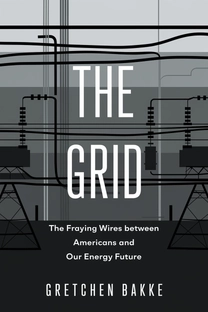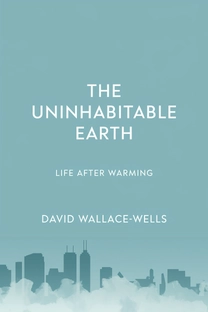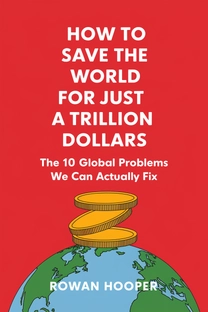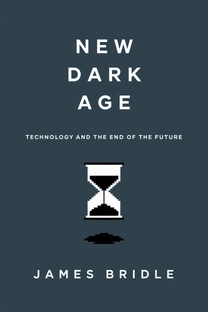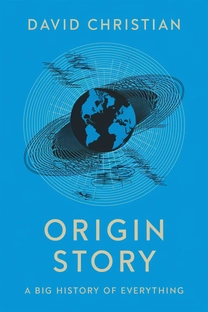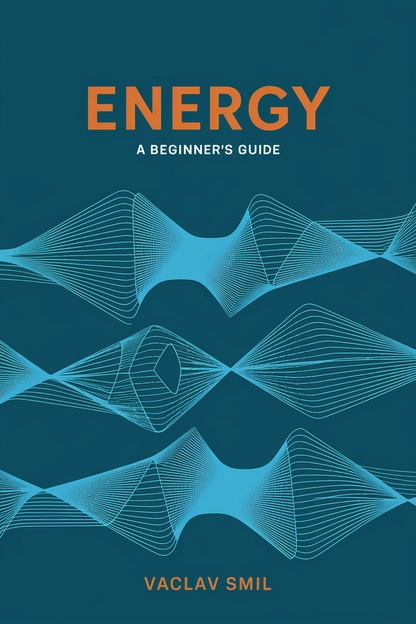
Energy
A Beginner’s Guide
by Vaclav Smil
Brief overview
This book explains how people discovered, shaped, and refined the use of energy across history, from wooden tools and waterwheels to large-scale fossil fuel burning. It shows how new energy sources spurred extraordinary inventions while presenting environmental and social challenges. By reading it, you will understand why energy underlies modern civilization and how societies might manage it responsibly in the future.
Introduction
Why does energy matter so deeply? In nearly every era, societies have found creative ways to generate light, heat, or movement. As we look back at these developments, we see how controlling energy sparked new technologies and cultural leaps. From the invention of waterwheels to the rise of modern power grids, energy controversies shape our world.
In thinking about prehistoric times, imagine small bands of humans gathering sticks for fire. Such a simple fuel was crucial for cooking and warmth, but it also started a larger pattern of using resources in smarter, more innovative ways. Understanding these leaps helps us see that energy transitions are never sudden—they are incremental and cumulative processes.
This summary highlights pivotal moments in energy’s story, showing how coal fueled the Industrial Revolution, how oil transformed mobility, and how electricity became indispensable throughout the twentieth century. By seeing these transitions, we gain insights into why certain technologies flourished, how societies adapted, and where current sustainability debates might be heading.
Throughout these pages, keep in mind how people’s access to power—from early muscle-driven labor to large-scale turbines—determines what can be built, produced, and traded. Today, as global populations grow and energy demands multiply, these lessons from the past can inspire a balanced approach to future challenges. Let's begin by unraveling the core aspects of energy.
Defining Energy and Its Forms
Energy is more than just fuel or electricity. In scientific terms, it’s the capacity to perform work, whether that work is moving a car engine’s piston, lighting a home, or powering a phone. Early societies understood it intuitively, even if they lacked formulas or modern measurements to label it.
One crucial discovery was that energy cannot be created or destroyed—only converted from one form to another. Rubbing two sticks together creates heat due to friction, a transformation of kinetic energy into thermal energy. These concepts, though abstract in principle, are daily realities that shape cooking, manufacturing, and every other human activity.
Varieties of energy are everywhere: from the chemical energy storing solar captures in plants, to mechanical energy harnessed by turning waterwheels, to electrical energy that powers your laptop. Grasping these fundamental distinctions illuminates why some energy sources work better for certain tasks, such as fueling cars or providing stable base-load electricity.
Spanning from the workings of living organisms to massive industrial systems, energy’s scientific underpinnings also highlight pressing issues like efficiency and conservation. Once you see how different energy forms interconnect, it’s simpler to evaluate whether hydropower suits your region, or if solar panels will offset your home’s power needs effectively.
What is Energy about?
"Energy: A Beginner’s Guide" by Vaclav Smil is a comprehensive exploration of humanity's evolving relationship with energy. Spanning from our earliest reliance on basic fuels to the complexity of today's global energy systems, this book not only delves into how energy innovations spurred technological advancements but also addresses the environmental and societal challenges that accompany them. By understanding these dynamics, the book provides critical insights into how societies have utilized, adapted, and reorganized around different energy sources over time.
Author Vaclav Smil meticulously recounts the history of energy use, highlighting key moments such as the Industrial Revolution, the rise of fossil fuels, and the modern push towards renewable energy alternatives. "Energy: A Beginner’s Guide" underscores why energy is foundational to civilization, fueling everything from modest cooking fires to massive power grids. This captivating read emphasizes the need for a responsible approach to managing our energy future, encouraging readers to learn from past lessons to forge sustainable solutions for challenges ahead.
As readers journey through time, they gain an engaging perspective on how various energy sources have transformed societies, impacting everything from urban development to global trade. Recognizing energy not only as a technological driver but as a profound cultural force, "Energy" reveals both the dramatic progress we enjoy today and the pressing issues we face moving forward.
Review of Energy
Vaclav Smil’s "Energy: A Beginner’s Guide" masterfully balances historical depth with accessibility, making an intriguing exploration of the fundamental force that powers our world. The book's key strength lies in its ability to articulate complex concepts such as energy transitions and their ripple effects through history, all while maintaining clarity and engagement throughout the narrative. Smil offers potent insights into how energy sources evolved from primitive wood fires to vast fossil fuel networks, each contributing to monumental shifts in societal development.
The practical applications drawn from Smil’s work are numerous and timely. By tracing energy's past, Smil imparts invaluable lessons about transitioning to newer, sustainable energy forms—an idea resonating with modern-day demands for clean technology. This educational journey is presented through an analytical yet conversational writing style, which enriches the reader's understanding without overwhelming them with jargon. Attention to the varying energy needs through history offers readers a broader perspective on current and future energy challenges.
Aimed at general readers yet valuable to energy enthusiasts and professionals alike, this book lays bare the foundational role energy plays in shaping human societies and their environments. Smil's guide is an essential read for anyone seeking to comprehend our energy dependency in both historical and modern contexts. While highlighting the resilience and adaptability of human enterprise, "Energy: A Beginner’s Guide" candidly stresses the urgency of our collective responsibility to seek sustainable energy solutions moving forward.
In summary, Smil's compelling narrative equips readers with the knowledge to appreciate energy's intricacies and challenges, making it highly recommended for those ready to explore this critical aspect of our daily lives.
Who should read Energy?
- - **Environmental Scientists**: To better understand human energy usage patterns and their impact on ecosystems, enabling them to develop solutions to minimize environmental harm.
- - **Policy Makers and Planners**: For those creating sustainable policies and infrastructures, this book offers historical precedence and data-driven insights into energy regulation and management.
- - **Educators and Students**: Energy is a core subject in many curriculums, and this book provides an accessible yet thorough examination of its evolution and implications, making it an ideal supplementary read.
- - **Energy Sector Professionals**: Individuals working in energy production, distribution, and innovation can gain a historical perspective and enhance strategic planning by learning from past energy transitions.
- - **General Readers with Interest in Science and History**: Engaging narrative and factual accuracy make it a compelling read for anyone intrigued by humanity’s scientific, cultural, and technological journey.
About the author
Book summaries like Energy
Why readers love Mindleap
10-Minute Book Insights
Get the core ideas from the world's best books in just 10 minutes of reading or listening.
Curated For You
Discover your next favorite book with personalized recommendations based on your interests.
AI Book ExpertNew
Chat with our AI to help find the best book for you and your goals.
Reviews of MindLeap
Love how I can get the key ideas from books in just 15 minutes! Perfect for my busy schedule and helps me decide which books to read in full.
Alex R.
The summaries are incredibly well-written and the audio feature is perfect for my commute. Such a time-saver!
Jessica M.
Great app for personal growth. The insights are clear and actionable, and I love how they capture the essence of each book.
Chris P.
The app is beautifully designed and the summaries are top-notch. Definitely worth every penny!
Sarah K.


